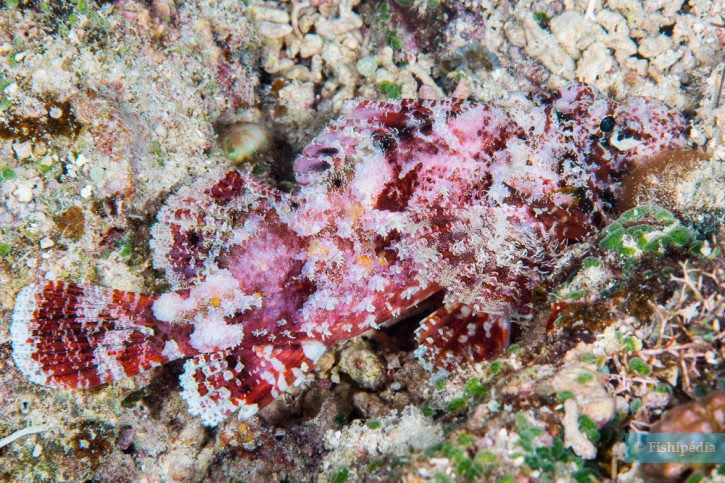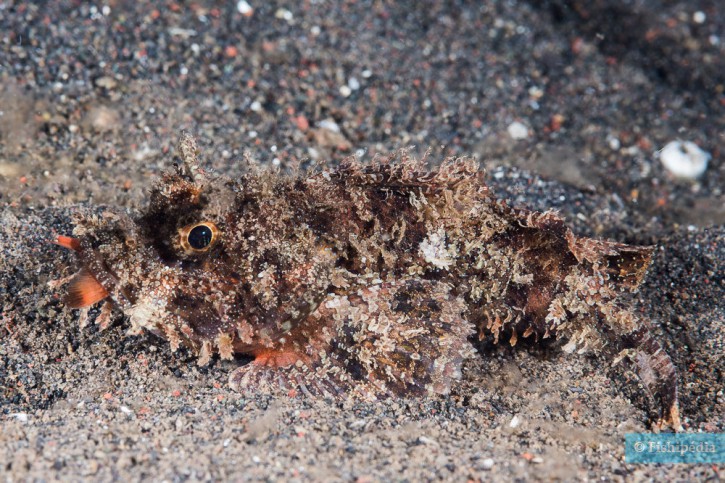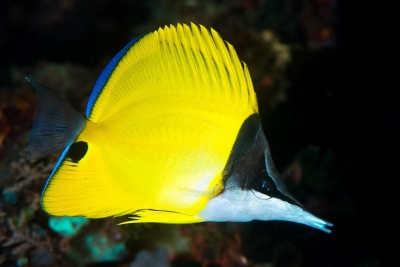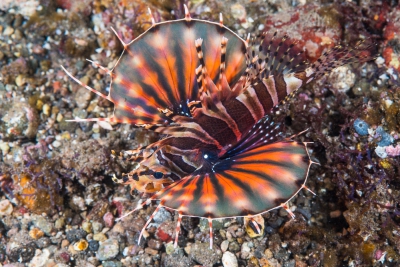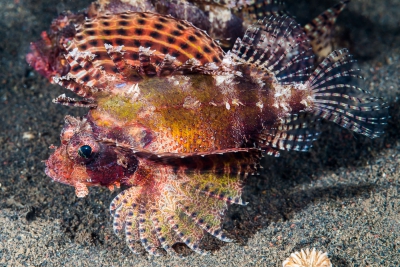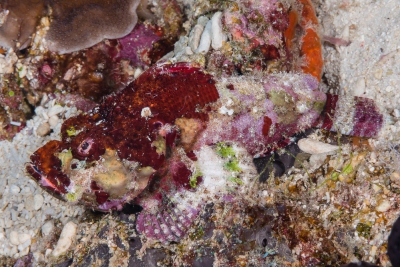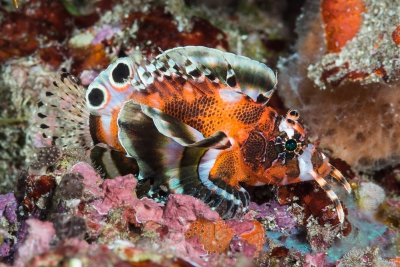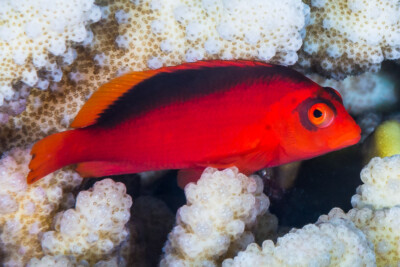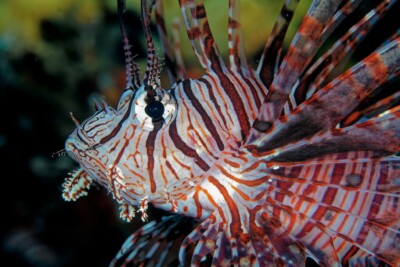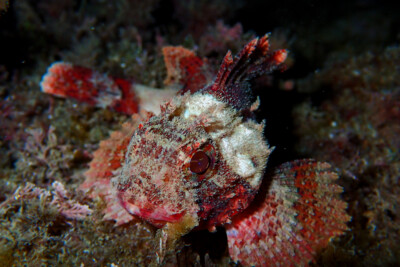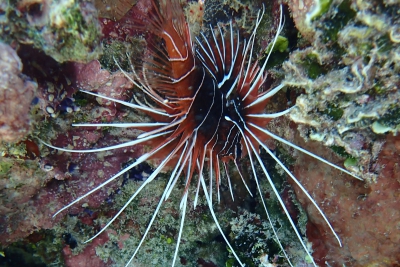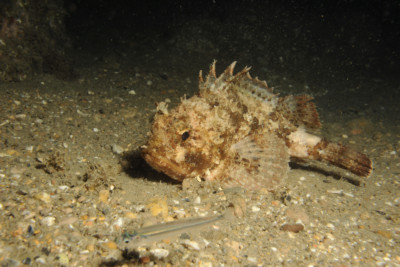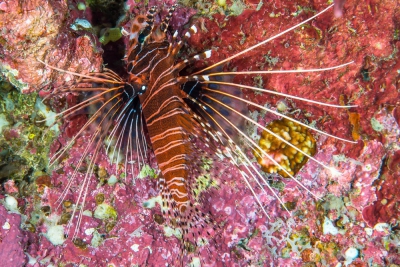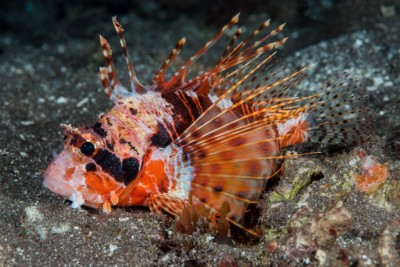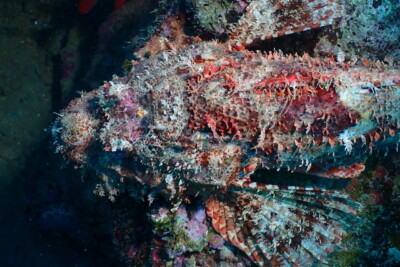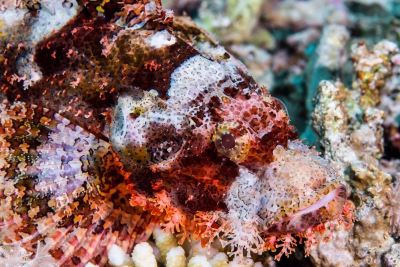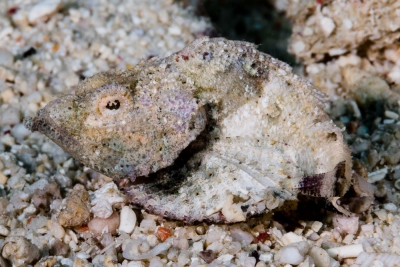papuan scorpionfish
| Scientific name | Scorpaenopsis papuensis |
|---|---|
| Descriptor | Cuvier |
| Year of description | 1829 |
| IUCN category (World) | LC |
| Family | Scorpaenidae |
| Genus | Scorpaenopsis |


Introduction
The Scorpaenopsis venosa, commonly known as the papuan scorpionfish, is a predator resembling stonefish.
It is found in coastal areas from East Africa to Papua New Guinea. It is also documented in the Great Barrier Reef and the Saya de Malha Bank (between 76 and 95m).
Who is it?
Morphology
-
Type
-
Average size20 cm
-
Maximum size25 cm
-
ShapeUnclassifiable
-
Mimicrystone
-
Type
-
Average size20 cm
-
Maximum size25 cm
-
ShapeUnclassifiable
-
Mimicrystone
How to recognize This fish ?
The color of this fish varies depending on the substrate but it is commonly seen in dark brown to red tones with lighter spots. Its mouth is typical of ambush predators, protractile and inclined upwards.
Adults are easily recognizable by small light blue ocelli scattered on the body as well as the characteristic black triangle under the eye. Juveniles have three distinct white spots along the back.
Sexual dimorphism
Dimorphism not provided.
Behaviour & Life cycle
-
dietcarnivorous
-
Sociabilitysolitary
-
territorialYes
-
Way of livingnocturnal
This species resides on the sea floor. It spends most of its time motionless, camouflaged in vegetation.
This fish is a specialized predator in hunting other fish.
Reproduction
-
Reproductionovipare qui pond en eau libre
The papuan scorpionfish is an oviparous fish that spawns in open water.
Risks for humans
-
VenomousYes
This species is venomous and can cause serious injuries when touched.
Origin and distribution
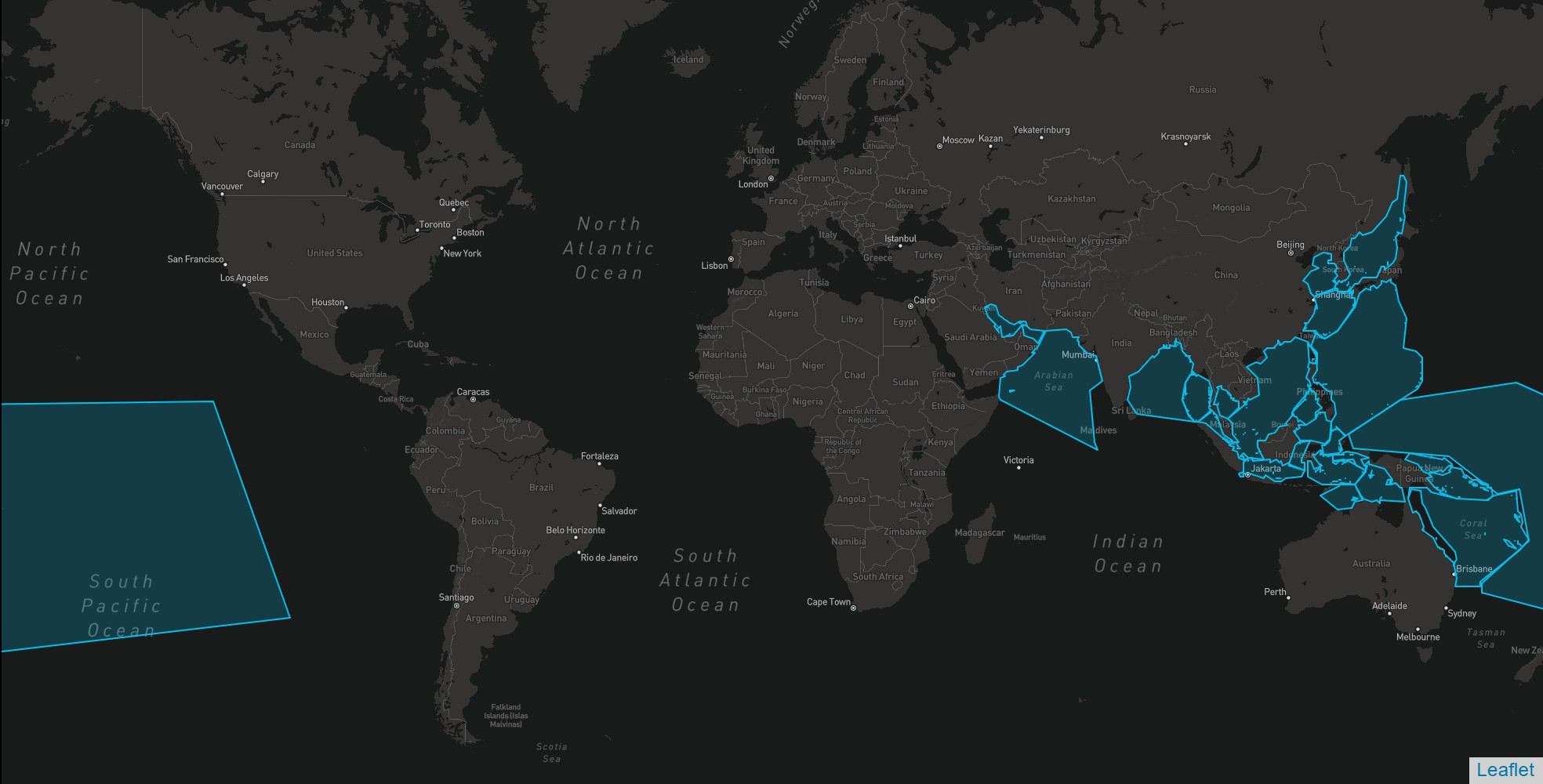
Conservation status of populations (IUCN)
What is its habitat?
Natural environment characteristics
-
Temperature22 - 26 °C
-
Depth1 - 95 m
-
FlowMedium, Slow and Stagnant
Biotope presentation
This fish inhabits coastal reefs, camouflaged in seagrass beds, sponges, or algae. It is more associated with the mainland and seems to be absent from true oceanic islands.
Species of the same biotope
To go further
Sources & Contributions
Participation & Validation
The Fishipedia team and specialist contributors are committed to providing high-quality content. However, although the information comes from scientific sources or testimonials from specialists, the cards may contain inaccuracies.

Benoit Chartrer
Translation
Translation done with the valuable contribution of our translators, who make this information available to a wider audience. We sincerely thank them for their commitment.
Scientific partners
Tags
Species of the same family
Same genus
Species of the same biotope
